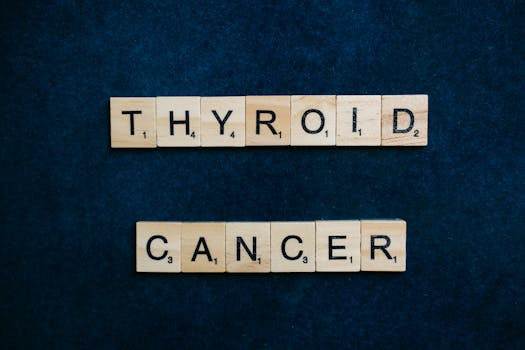Effective Management of Thyroid Disease Through Drug Treatment and Lifestyle
Thyroid disease encompasses a range of disorders that affect the thyroid gland, a small butterfly-shaped gland located in the neck. This gland plays a crucial role in regulating metabolism, energy levels, and overall hormonal balance. The two most common types of thyroid disease are hypothyroidism (underactive thyroid) and hyperthyroidism (overactive thyroid). Effective management of these conditions often requires a combination of drug treatment and lifestyle modifications. This article explores the best practices for managing thyroid disease, supported by research and real-world examples.
Understanding Thyroid Disease
Thyroid disease can manifest in various ways, leading to a range of symptoms that can significantly impact quality of life. According to the American Thyroid Association, approximately 20 million Americans have some form of thyroid disease, with women being five to eight times more likely to be affected than men.
- Hypothyroidism: Symptoms include fatigue, weight gain, cold intolerance, and depression.
- Hyperthyroidism: Symptoms may include weight loss, rapid heartbeat, anxiety, and heat intolerance.
Understanding these conditions is the first step toward effective management. Diagnosis typically involves blood tests to measure levels of thyroid hormones (T3 and T4) and Thyroid-Stimulating Hormone (TSH).
Drug Treatment Options
Drug treatment is often the cornerstone of managing thyroid disease. The choice of medication depends on the specific condition diagnosed.
Hypothyroidism Treatment
For hypothyroidism, the most common treatment is levothyroxine, a synthetic form of the thyroid hormone thyroxine (T4). This medication helps restore normal hormone levels, alleviating symptoms. A study published in the Journal of Clinical Endocrinology & Metabolism found that 90% of patients experienced significant symptom relief within six weeks of starting levothyroxine therapy.
Hyperthyroidism Treatment
In cases of hyperthyroidism, treatment options may include:
- Antithyroid medications: Such as methimazole, which inhibit the production of thyroid hormones.
- Radioactive iodine: This treatment destroys overactive thyroid cells.
- Surgery: In severe cases, partial or total thyroidectomy may be necessary.
Each treatment option has its benefits and risks, and the choice should be made in consultation with a healthcare provider.
Lifestyle Modifications for Thyroid Health
In addition to medication, lifestyle changes can play a significant role in managing thyroid disease. Here are some effective strategies:
- Balanced Diet: A diet rich in fruits, vegetables, whole grains, and lean proteins can support thyroid function. Foods high in iodine, selenium, and zinc are particularly beneficial.
- Regular Exercise: Physical activity can help manage weight and improve mood, which is especially important for those with hypothyroidism.
- Stress Management: Chronic stress can exacerbate thyroid issues. Techniques such as yoga, meditation, and deep-breathing exercises can be helpful.
- Adequate Sleep: Quality sleep is essential for hormonal balance. Aim for 7-9 hours of sleep per night.
For example, a case study published in the Thyroid Journal highlighted a patient with hypothyroidism who adopted a Mediterranean diet and engaged in regular exercise. Within six months, the patient reported improved energy levels and a significant reduction in symptoms.
Monitoring and Ongoing Care
Regular monitoring of thyroid hormone levels is crucial for effective management. Patients should have their TSH and hormone levels checked every 6-12 months, or as recommended by their healthcare provider. This ensures that any necessary adjustments to medication can be made promptly.
Conclusion
Effective management of thyroid disease requires a comprehensive approach that combines drug treatment with lifestyle modifications. By understanding the condition, adhering to prescribed medications, and making healthy lifestyle choices, individuals can significantly improve their quality of life. Regular monitoring and open communication with healthcare providers are essential to ensure optimal management of thyroid disease. With the right strategies in place, those affected by thyroid disorders can lead healthy, fulfilling lives.
